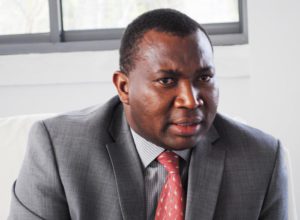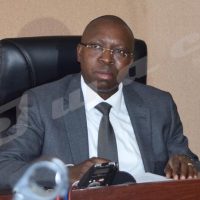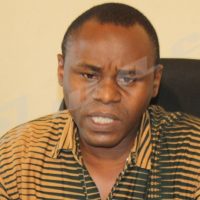The budget bill for 2018 provides for a budgetary independence rate of 81.2%. The Minister of Finance calls for continued economic austerity policy.

Domitien Ndihokubwayo, Burundi Minister of Finance: “Burundi is not poor. It will soon be able to finance its budget at 100%”
“Prudent budgetary and austerity policy will be maintained for the 2018 fiscal year,” said Domitien Ndihokubwayo, Minister of Finance, in the National Assembly while presenting the 2018 budget bill on December 13.
Ndihokubwayo said that for the BIF 518 billion estimated as additional expenses in fiscal year 2018, the forecast of additional revenue remains at BIF71.3 billion. He said government sectors will be prioritized.
In a similar vein, he explained, Articles 30 and 31 of this budget bill provide for the suspension of bonus for state employees and the recruitment of new employees respectively. However, according to this bill, the sectors of national education, public health and communal development benefit from a margin of recruitment.
For this, 1000 teachers will be recruited. According to the same budget bill, 10 medical specialists, 20 general practitioners, 16 nurses, 10 environmental health nurses, 10 radiologists, 10 anesthetists, 10 pharmacists, 12 midwives, 75 medical technicians, 16 laboratory technicians and 12 health promotion technicians are assigned to the Ministry of Public Health.
According to Minister of Finance, this bill allocates BIF 1 billion for a guarantee fund to create a bank for young people. It also allocates BIF 3.09 billion to the capital of AFRI-EXIM and BIF 402 million to the African Solidarity Fund.
According to the minister, both institutions finance development projects in Burundi. In the new budget bill, each commune will have a civil engineer while BIF 500 million will be paid to each commune account for development projects.
Ndihokubwayo said he is proud of the level of budgetary independence Burundi has achieved. “I’m happy with our momentum towards economic independence,” he said, arguing that “Burundi is not poor as it will soon be able to finance 100% of its budget.” He said that the “fiscal independence rate is 81.2% in 2018 budget bill.”
Strategic plan to yield public revenue
To reach this rate, the 2018 budget bill provides inter alia, explains the minister, the increase in taxes on the income of legal entities and individuals. The taxes go from BIF 162.3 billion in 2017 to 177.9 billion in 2018.
It also provides for the raising of general taxes on goods and services. These taxes have increased from BIF 404.8 billion in 2017 to 451.8 billion in 2018.
Ndihokubwayo has identified measures that will make these increases possible. He cited in particular the strengthening of the collection of taxes from the mining sector, the raising of taxes relating to income tax and value-added tax (VAT), etc.
He also said “the procedures for granting exemptions will be reviewed”. He refers to a guarantee of bank security of 30% of the amount of the exemption to the applicants. Minister of Finance mentioned that 5% of pre-tax income will now be required from financial institutions as a “special contribution.”
The general 2018 fiscal year goes from BIF1326.8 billion in 2017 to BIF 1388.1 billion. The budget bill for 2018 was adopted unanimously.
Written by Edouard Nkurunziza and translated by Lorraine Josiane Manishatse


















 IWACU Open Data
IWACU Open Data

